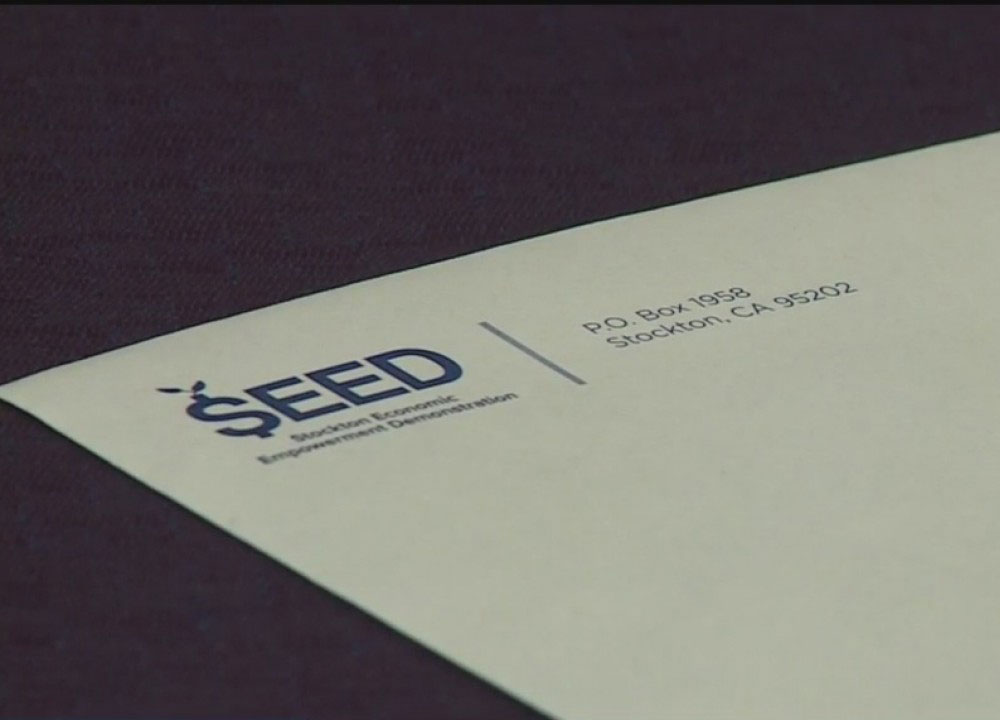
July 15, 2020; New Yorker
Sometimes, the simplest government benefits work best. Part of the attraction of universal basic income (UBI) is that it provides cash, which allows recipients to use the benefit as they choose, with no justification required for how they spend the money. This may sound unusual for a government social program (except, of course, Social Security); on the other hand, this is standard practice for the government tax breaks (tax expenditures) that routinely benefit the wealthy, such as the mortgage interest tax deduction or the reduced tax rate that capital gains earners receive.
As NPQ has covered, the city of Stockton, California, has been a leader in piloting a UBI program since February 2019. Stockton’s program is called the Stockton Economic Empowerment Demonstration project, or SEED. Backed by Facebook cofounder and philanthropist Chris Hughes, SEED has offered 125 residents who live in census tracts at or below the city’s median household income of $46,033 checks of $500 a month for 18 months. July 2020 was supposed to be the 18th and last month. However, due to COVID-19, the benefits for program participants have been extended six months through January 2021.
The extension means that evaluation of program results will also take six months longer to arrive. However, preliminary reports of outcomes are positive, according to Linnea Feldman Emison of the New Yorker.
Two professors of social work, Amy Castro Baker of the University of Pennsylvania and Stacia Martin-West of the University of Tennessee, helped design the pilot and will evaluate the results. As Emison explains, “Each month, participants receive payments on a debit card, which the researchers are able to track. No restrictions are placed on what the money can be used for; if participants don’t want their expenses tracked or prefer to use cash, they can transfer the money off the card.” The evaluation also includes a control group of people who are not getting the $500 payments.
Emison reports that to date the cash has gone “toward rent, car payments, and paying off debt, as well as one-off expenses for themselves or their children: dental surgery, a prom dress, football camp, and shoes.” She adds that UBI recipients have “also been able to cut back on working second and third jobs.”
Sign up for our free newsletters
Subscribe to NPQ's newsletters to have our top stories delivered directly to your inbox.
By signing up, you agree to our privacy policy and terms of use, and to receive messages from NPQ and our partners.
Jennifer Burns, a history professor at Stanford University, notes, as has NPQ before, that the CARES Act payments of $1,200 to all taxpayers earning $75,000 or less marked a significant shift in public thinking about cash transfers. While the recent push for UBI has often come from Silicon Valley entrepreneurs who see cash grants as a “quick fix” for job losses due to automation, Burns points out that the current crisis has shifted the focus away from hypothetical disasters toward inequities that already exist.
Stockton’s experiment, even if not complete, has already attracted imitators. The goal of SEED, notes Emison, “was always to promote the adoption of basic-income programs on a state or federal level, rather than to lay the groundwork for a long-term program in Stockton.”
Now, cities from across the country are exploring the idea. Cities Emison names include Portland (Oregon), Chicago, Nashville, and New Orleans. This is in addition to the 15 cities (including Los Angeles, the nation’s second-most populous city), which, as NPQ reported, have joined with Stockton to form Mayors for a Guaranteed Income. The momentum behind that effort is notable—at the start of July, Mayors for a Guaranteed Income had 11 mayors who had signed on; now, it has 16 and surely climbing. Just last week, Jack Dorsey of Twitter pledged a modest $3 million in support of the effort.
What would it take to provide a guaranteed income to all Americans?
Emison reports that according to Hilary Hoynes, an economist at the University of California, Berkeley, the annual cost of a truly universal federal-basic-income program in the US would be around $3 trillion, a sizable sum. Hoynes says that a payment with a cut off (like the CARES stimulus payments) would be one way to reduce that price tag.
Hoynes notes that while providing a universal basic income to all is not cheap, the benefits are significant. Using health insurance as an example, Hoynes observes, “More and more of the assistance that’s provided in America is conditional, and, as is very evident right now, programs that are conditioned on work aren’t helpful where work isn’t plentiful.”—Steve Dubb












